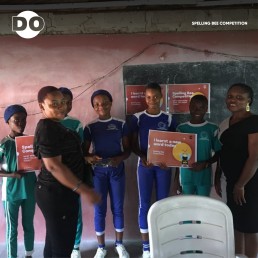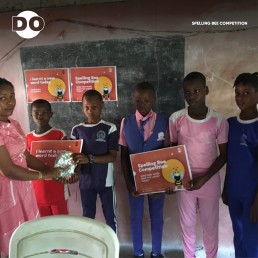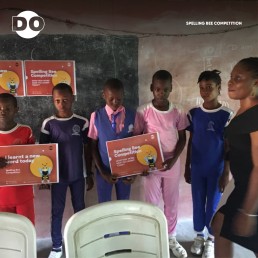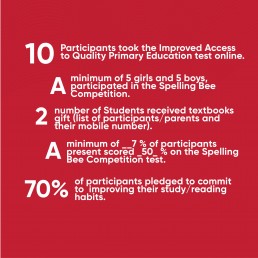<strong>THE NEED</strong>
Growing up, we had dictation sessions, where a teacher would dictate big words to students and award marks to those that got the right spelling. Such activity encouraged us to read more and walk around with a pocket dictionary to check the spelling and meaning of any new word we encountered.
Over the years, dictation classes have translated to the Spelling Bee competition, in which contestants are asked to spell a broad selection of words, usually with a varying degree of difficulty.
Spelling bees do not merely involve rote learning of words; rather, preparation for a bee is a comprehensive learning process that allows children to learn the definition, pronunciation, and roots of the word. This gives them competency over vocabulary, allowing them to excel at reading and writing. Also, spelling bees enable students to compete in a supportive environment whilst interacting and cultivating meaningful friendships with rivals.
The greatest benefit of spelling bees is that it helps participants develop a range of cognitive and public speaking skills. The learning process accompanying the spelling bee stimulates the brain, enhances confidence and takes away the agitation of participants; these can prove to be highly beneficial during higher education.
Spelling Bees is a good intervention to redress the growing illiteracy rate among young adults in Nigeria. According to a World Bank report, just about 20% of young Nigerian adults who have completed primary school can read. Given its somewhat high per capita income, Nigeria has a lower than expected level of educational performance. Overall, the literacy rate in Nigeria in 2018 was 62.02 per cent, way below Zambia, Kenya, Congo, Ghana, Bangladesh etc.
31-year-old Ejike Joy Ndidi, an Aquaculture and Fisheries Management graduate from the University of Ibadan, who is currently a teacher, saw the low literacy rate in his community and decided to employ Spelling Bee to redress the situation.
Being a passionate educator, Ejike organized a Spelling Bee competition at De-trio International School under the aegis of DO-Take Action.
The project entailed the following:
- A presentation on the importance of learning new words; their spelling, definition and usage
- A Spelling Bee competition to test students’ vocabulary
- Presentation of gifts to winners of the competition
A minimum of 10 participants participated in the Spelling Bee Competition in the project, while two students won textbook gifts. About 70% of the participants scored above average in the Improved Access to Quality Education test and pledged to improve their study/reading habits. Finally, 3 GDCs were recruited from the participants to organize a Book Festival/Club outreach program in their community.
Ejike Joy Ndidi has done her bit in improving the lives of school children in her community. What are you doing for the change you want to see?
If you enjoyed the story and would like to read more stories like this, sign up for our monthly newsletter to get notified of new stories.
Also, do well to follow our social media handles for more engaging and entertaining content on issues that affect YOU.





